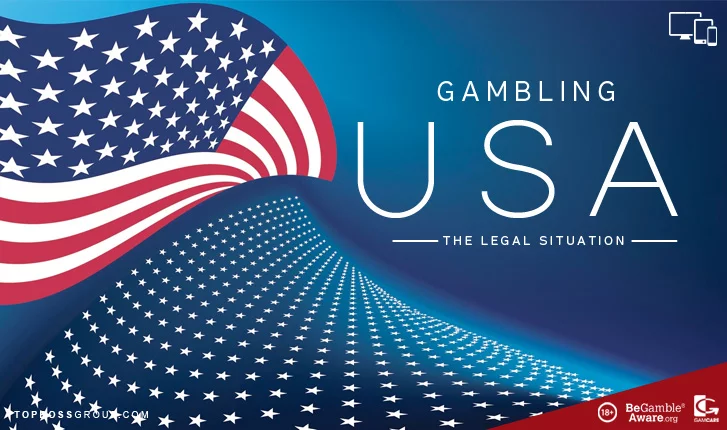What Is the Legal Gambling USA Situation in 2025?
The legal landscape of online gambling in the United States has evolved dramatically over the past decade. While the federal ban under the Unlawful Internet Gambling Enforcement Act (UIGEA) of 2006 once cast a long shadow over the industry, states now have greater autonomy to regulate online betting and casino platforms within their borders. In 2025, online gambling is legal in several U.S. states, with new jurisdictions entering the market each year.
A pivotal shift came in 2018 when the U.S. Supreme Court struck down the Professional and Amateur Sports Protection Act (PASPA), opening the door for states to legalize sports betting. Since then, the conversation around legalising online casinos and poker has gained momentum. While the federal government maintains some oversight—particularly regarding payment processing and interstate activity—the real power now lies with state legislatures.
Key States Leading the Way
States like New Jersey, Pennsylvania, Michigan, Delaware, and Connecticut are at the forefront of regulated online gambling. These states offer legal access to online casinos, poker, and sports betting through licensed operators. In Michigan, for example, the launch of regulated online casinos and poker rooms in January 2021 has proved incredibly successful, with consistent month-over-month growth in revenue and player activity.
New Jersey was the first major player to fully embrace online gambling following Governor Chris Christie’s landmark decision to sign legislation legalizing internet gaming in 2013. It set the standard for other states, showing that online gambling can be both profitable and well-regulated.
What About Other States?
In 2025, over 30 states now offer some form of legal sports betting, while fewer than a dozen have legalized online casinos or poker. However, more states are exploring legislation. New York, Illinois, and Indiana have introduced bills to expand their gambling offerings. Meanwhile, California and Texas remain major holdouts in the push toward legal online casinos, despite ongoing debates and voter interest.
The path to nationwide legalization is slow but gaining momentum. State-by-state regulation means that the availability of legal gambling varies significantly depending on where you live.
Ins and Outs of Online US Casinos
For players curious about how these legal frameworks work, it’s important to understand the Ins and out of online US casinos. Legal online casinos in the U.S. must adhere to strict state regulations regarding geolocation, player verification, responsible gaming measures, and tax reporting. Unlike offshore sites that operate in legal gray areas, licensed U.S. operators provide better consumer protection, secure payments, and direct recourse for player disputes.
Some states operate under a monopoly model, allowing only one or two licensed operators, while others offer a competitive landscape with multiple casino brands. As each state sets its own standards, features like game availability, bonus offers, and mobile compatibility may differ from one state to another.
Gambling laws change regularly in the USA and there are sites that promote legal online casinos. Read more about those sites.
The Role of Federal Agencies and Organizations
While the states lead legalization, federal entities like the American Gaming Association (AGA) continue to play a role in shaping policy, lobbying for fair regulations, and promoting responsible gambling. The AGA advocates for modernization of gambling laws and is often vocal in support of state-regulated markets over offshore or unlicensed operations.
Additionally, the Poker Players Alliance (PPA), now part of the Poker Alliance, continues to represent the interests of online poker players. They push for uniform standards and fair access, particularly as peer-to-peer games like poker face more scrutiny under state laws compared to online slots or roulette.
Looking Ahead
The future of legal online gambling in the USA looks bright, with expansion likely to continue into new states in the coming years. As more states witness the economic benefits—tax revenue, job creation, and tourism—momentum is building for broader legalization.
However, challenges remain. Key issues such as interstate compacts for online poker, uniform responsible gambling protocols, and continued federal clarity on the Wire Act will need to be addressed for a truly unified U.S. online gambling market.
Conclusion
In 2025, the legal gambling situation in the U.S. is more optimistic and structured than ever before. With several states embracing online casinos and poker under clear regulations, American players now have more opportunities to gamble legally and safely. The trend is unmistakable: online gambling is becoming a mainstream, regulated part of the American entertainment landscape.
Whether you’re in New Jersey or hoping your state passes a bill next, staying informed about the latest legal changes is essential. Always choose legal US casinos based in your jurisdiction, and remember to play responsibly.
FAQs: Legal Gambling in the USA
Which states allow legal online casinos in 2025?
New Jersey, Pennsylvania, Michigan, Delaware, Connecticut, and West Virginia have fully licensed online casino platforms. Rhode Island is expected to launch in 2025.
Is online poker legal in the U.S.?
Yes, but only in a few states like New Jersey, Michigan, and Pennsylvania. These states have legalized online poker platforms like WSOP.com and PokerStars.
Can I play at offshore online casinos from the U.S.?
Technically, yes—but it’s risky. Offshore casinos are not regulated by U.S. authorities, which means no legal protection if something goes wrong.
What is the UIGEA and is it still in effect?
The Unlawful Internet Gambling Enforcement Act (UIGEA) is still law, but it primarily targets banks processing payments for illegal online gambling—not players themselves. It doesn’t apply to state-regulated casinos.
What about cryptocurrency gambling in the USA?
Most state-regulated casinos do not accept crypto. However, offshore sites do. Always check your local laws before gambling with Bitcoin or any digital currency.


In the last week of December 2019 Governor Whitmer signed the bipartisan legislation, helping Michigan become the 13th U.S. state to authorize statewide online sports betting. It is certainly starting to look positive!